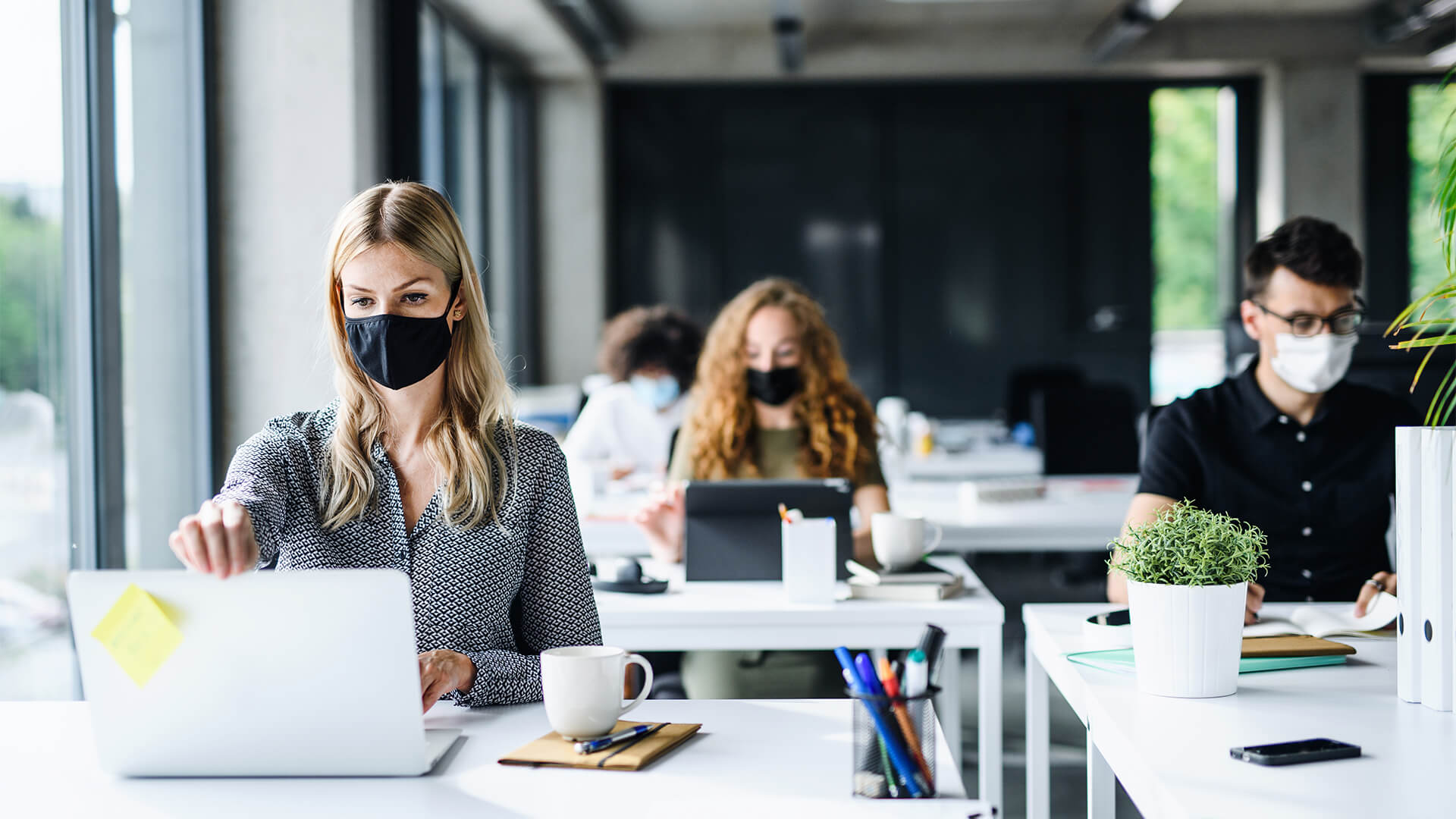Seven-in-ten Workers Feel Optimistic About Returning to Work As UK Opens Up
- 71% of workers said that the rollout of the vaccine made them optimistic about returning to work as normal, up from 50% after November’s lockdown
- 75% of workers said they would be comfortable to take a Covid-19 test before returning to the workplace; only 7% said they would feel uncomfortable with being tested
- 80% of employees who have been working or furloughed feel confident that their workplace is safe, and employers have standards that they meet to keep employees and public safe
- 64% of employees who have been working or been furloughed said the vaccine will make them feel safer at work; only 13% have concerns about their health and safety in the workplace relating to coronavirus
As pubs, shops and other workplaces re-open this week, the success of the vaccine rollout has helped workers feel much more optimistic about their return to work than they were following November’s lockdown, according to Aviva’s research of more than 2,000 employed adults across the UK.
Aviva’s third Employee Back to Work Index shows that 71% of workers surveyed agreed that the rollout of the vaccine made them optimistic about returning to work, compared with 50% after November’s lockdown who said that news of a vaccine gave them optimism about returning to work. Two-thirds (64%) of employees surveyed said the vaccine will make them feel safer at work.
Another piece in the puzzle of opening up safely is regular testing of workers for Covid-19. Aviva’s research shows that three-quarters (75%) of employees would feel comfortable to be tested for Covid-19 in order to work. Only 7% of employees said they would be uncomfortable with such a requirement.
Aviva’s Employee Back to Work Index comes as the UK takes its next steps out of lockdown, and captures the attitudes of full-time or part-time employed adults working in a wide variety of industry sectors across the UK on their feelings about their health and safety in the workplace.
Returning to the workplace – safely
Businesses have had to adapt at pace in the face of continually changing Covid restrictions. In some instances, this will mean that operations have fundamentally changed, including the role of employees in carrying out their duties. Aviva’s survey found that 23% of employees surveyed said their job had changed as a result of new business operations due to Covid, but that they were not offered any training on their new role, compared to 11% who said their job had changed and they had been offered training.
Likewise, employees who have been absent from the workplace since the beginning of the January lockdown could benefit from refresher training. Overall, 60% of employees surveyed who had been off during previous lockdowns said that their employer had not offered them refresher training to ensure they are able to continue to do their job safely.
Homeworking
Working from home looks set to stay for many employees. Of those employees surveyed that are currently working from home, 40% said that after lockdown restrictions have ended, they will split their time between home and their usual workplace, while 30% said their employer has told staff that they should continue to work from home. Just one-in-four (24%) said their employer expects all employees to return to the office on a permanent basis after pandemic restrictions ease.
Only 52% of employees surveyed who have been working from home said their employer had taken steps to ensure their home office is set up safely to prevent injury or strain. However, 40% of employees said their employer had not taken any steps to make their workstation safe, potentially putting them at unnecessary risk of injury. Employers should ask employees to complete a homeworking assessment and if the employee is likely to continue working at home into the longer term, then more rigorous assessments might be required.
Cyber risk not being addressed
Working from home has also increased the risk of a cyber attack. As Covid forced businesses to work remotely and – increasingly, digitally – cyber attacks increased, with 46% of UK businesses reporting a cyber breach or attack in 2020. However, Aviva’s survey found that just under half (48%) of employees working from home said their employer did not take any steps to reduce their cyber risk.
What risks do you face as you come out of lockdown?
Aviva asked workers what risks they believe they face as they come out of successive lockdowns. Workers could choose multiple responses. While it is positive to see the gradual increase in the proportion of workers saying ‘there is no biggest risk’ (now at 26%), there are still a number of workers who are concerned about Covid-19, and a significant and growing number of workers who say lockdown has impacted their mental health.
What risks do you face as you come out of lockdown? | June 2020 | Nov 2020 | March 2021 |
My health – I worry about catching Covid-19 | 27% | 34% | 31% |
My mental health – the changes under lockdown have affected my happiness | 12% | 26% | 27% |
There is no biggest risk to me as we come out of lockdown | 18% | 21% | 26% |
My safety – I worry about how a change in work processes to maintain social distancing will affect my safety at work | 14% | 23% | 24% |
My job – I worry about being made redundant | 18% | 24% | 18% |
My safety – being off work for so long means I am more likely to get injured at work | 4% | 11% | 11% |
Chris Andrews, Director of Aviva Risk Management Solutions, said, “The vaccine rollout has had an enormous benefit to employee confidence in returning safely to the workplace. Our research found that 80% of employees who have been working or furloughed feel confident their workplace is safe and that their employer has standards that they meet to keep employees and the public safe. This is a significant, positive step in our journey back to working normally.
“There are, however, a number of risks that businesses must address to ensure that the return to the workplace is wholly successful. Training for employees who have been off work for some time is essential to reduce the chance of injury upon return. Likewise, those employees whose jobs have changed as their business has adapted to Covid restrictions should also receive training on their new ways of working. And if working from home becomes the norm, employers need to do more work to ensure their employees are safe at home and have the appropriate tools and environment to work effectively.
“Businesses also really need to consider how they can protect their organisation from cyber attacks while their employees work from home. Cyber attacks come in many forms, and increasingly target employees through phishing and social engineering fraud. It’s clear from our research that more needs to be done to help employees understand and identify the various forms of cyber attacks while working from home to protect the business.”

Stay updated with our latest publications.
Discover Issues
See how we can help you grow in the online space!
Advertise With Us
We can help promote your business.
Find Out More



